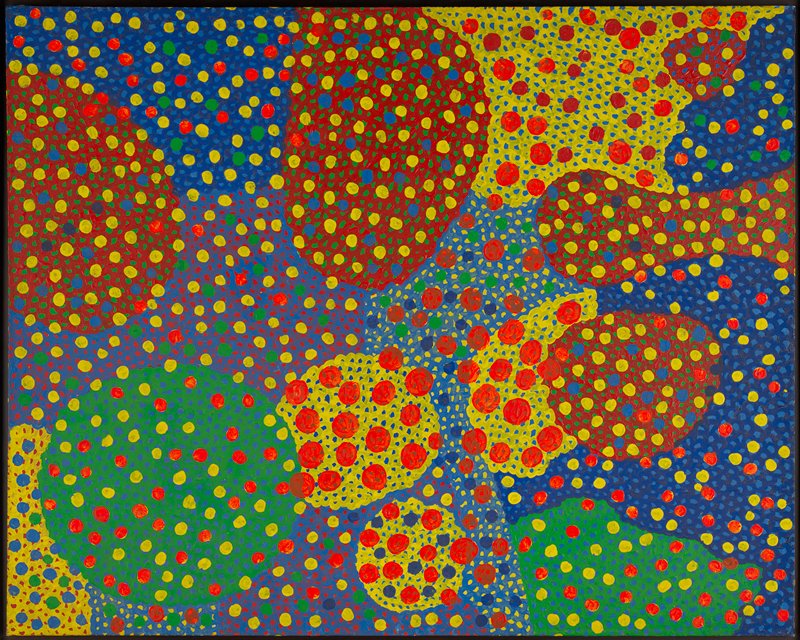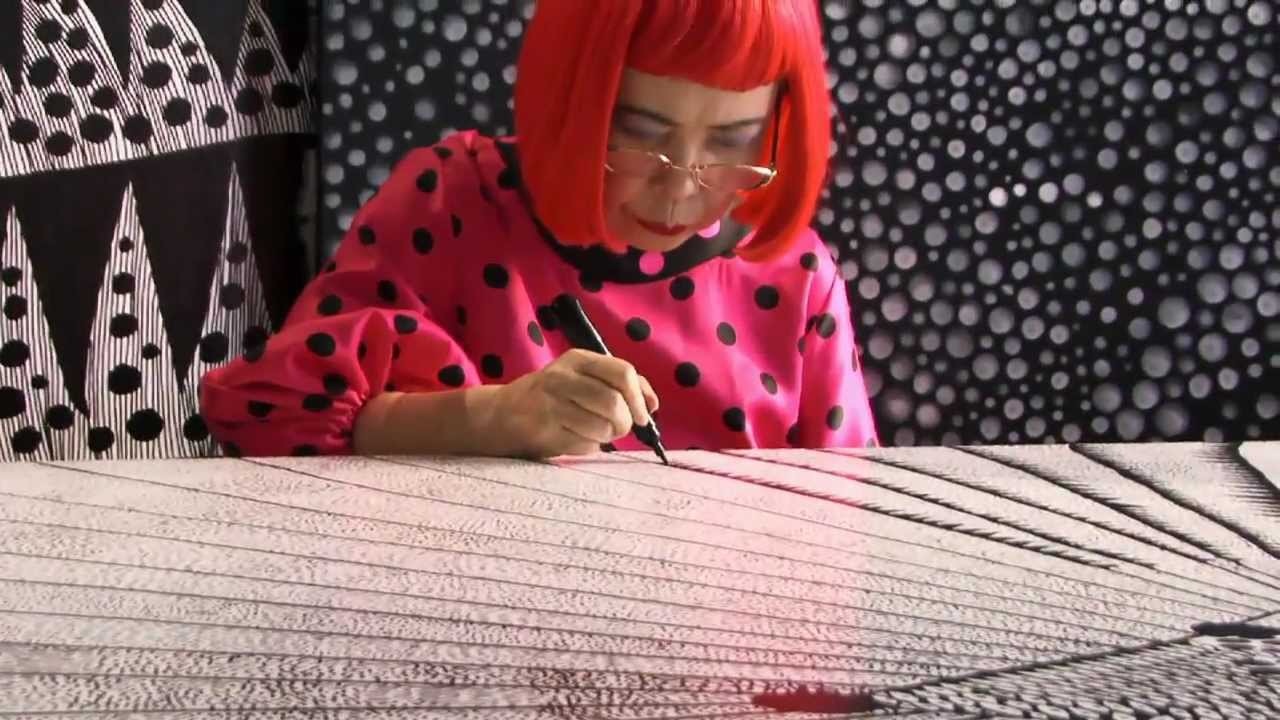Yayoi Kusama, “Untitled” (1967)
What do you think or feel when you see a bright polka dot painting? This mesmerizing painting was created by Yayoi Kusama, a Japanese artist who was called “Princess of Polka Dots”. She creates many artworks ranging from paintings, sculptures, installation to performance art. She was born in 1929 and has become one of the influential contemporary artists until now.
Untitled (1967) brings the audience to the illusion of boundaryless space. A combination of big and small dots in bright colors evokes an illusion in our eyes. It breaks the space dimension and at a certain point, it can free our mind. As many of Kusama’s works, Untitled (1967) has also hypnotic effects for the audience.
For Kusama, polka-dots symbolize the energy of the whole world and living life. The round, soft, colorful, senseless, unknowing of polka-dots are a way to infinity.
Yayoi Kusama’s Art-Medicine
Yayoi Kusama started to paint when she was 10 years old, but her parents did not allow her to paint because according to the tradition at that time, a young woman should follow an arranged married. She moved to the United States at the age of 27. She promised herself that someday she will conquer New York and make her name in the world in her passion for arts. In the United States, she made a lot of works, like a series of Mirror/Infinity room and a happening art in which she was painting her naked body with dots shape as a protest of the Vietnam war.
Yayoi Kusama is an inspirational artist because she uses her arts to express her resistance to the oppression system in her living environment. She is also making art as a way to manages and heal her hallucinations and obsessive thoughts.


